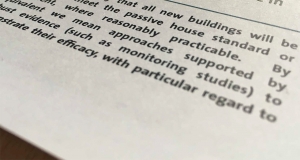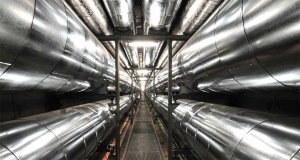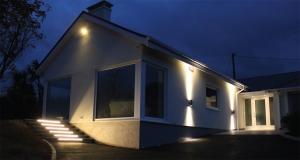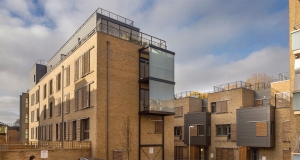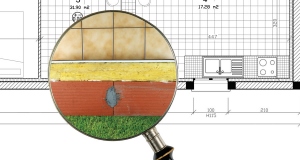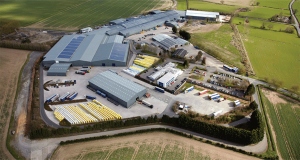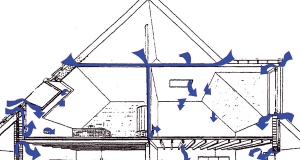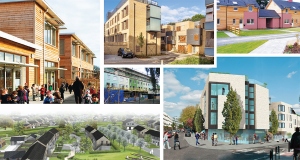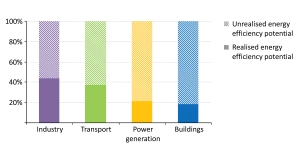- Opinion
- Posted
Opinion

If you’re not assessing the environmental performance of your suppliers and their products, it’s rapidly becoming a case of “caveat emptor”. Many of the world’s biggest companies are now buying green, and the Irish government is about to follow suit. Ignore the issue and you put your company at a competitive disadvantage, argues Brian O’Kennedy, managing director of Clearstream Solutions.
Whether buying or supplying, Irish companies need to quickly react to the topic of green procurement. It’s not about making sure that everything you source must be the greenest possible solution, nor is it about avoiding buying anything. It is however about ensuring a measured balance between quality, cost, lead time and the environment, regardless of whether you are building an Olympic stadium or buying copier paper.
Having spent almost 20 years working in global supply chain, I’m concerned that many Irish companies either don’t understand sustainable procurement, or are simply paying lip service to the issue. In 2005 Wal-Mart – the world’s largest retailer – embarked upon an extensive campaign of supplier environmental assessments, from its store build and fit out, right through its 100,000 plus suppliers. Through its supplier program, Wal-Mart has reduced cost, limited risk and improved its public image, all delivering additional bottom line benefits.
On 11 May the Irish government will signal its intent to focus on green procurement by hosting a conference organised by the Department of the Environment on the subject of green public procurement policy. Irish businesses that ignore this will be left behind when it comes to tenders and requests for proposals, as green procurement trickles down through our economy.
The opportunity for Irish companies is that the other side of green procurement is green selling. Companies that possess strong green procurement policies are better placed to be able to convince their customers of their sustainability credentials. Companies looking to measure the green performance of their suppliers will increasingly look at the full lifecycle of their products and services, thus involving not just their direct suppliers but also companies down through the tiers of their supply chains.
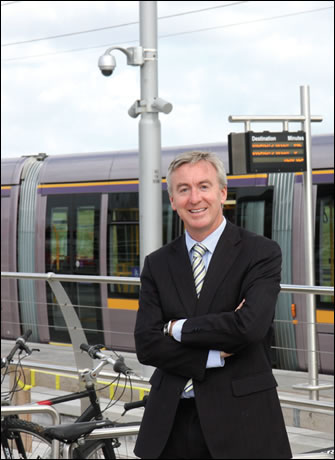 |
| Brian O'Kenndy, Comeda |
We will increasingly see the performance criteria in tenders include a weighting to assess environmental performance and sustainability. One recent Irish semi-state company asked businesses responding to a tender to describe how the suppliers’ environmental policies would assist the semi-state company to become more sustainable – a sensible and clever approach which I’m sure sent many of the respondents scrambling to put together a coherent response.
As part of the development around London 2012, the British Standards Institute has published a new set of sustainable procurement guidelines, BS 8903: Principles and framework for procuring sustainably. These are now available for public comment and are expected to be formally launched this year. Any Irish company tendering for projects associated with the Olympics would be well advised to familiarise themselves with the BS 8901 standard and BS 8903 guidelines as your sustainability credentials will be assessed.
Simply engaging with suppliers on the sustainability topic in a partnership basis will very often unlock savings and benefits. Construction, IT and material purchases in particular can account for significant carbon savings. There’s the now well-documented story of Walkers Crisps who during a carbon assessment found that their farmers were adding moisture to the potatoes because they were paid by weight. As a result, Walkers had to pay more for their potatoes and then spend more on energy drying them out. By measuring the carbon emissions of the whole supply chain and reporting this on their packs, Walkers were able to identify the issue, cut energy and transport costs while offering the farmers a better deal – a clear win-win.
Infineco CEO Gerry McCaughey wrote in the March/April edition of Construct Ireland about how the US is really waking up to the green building opportunity. However Ireland will be competing with other countries that have well established green procurement guidelines in place. As a result their companies may be better prepared to respond to sustainability criteria in tenders. The Carbon Reduction Commitment scheme in the UK will again raise the bar for Irish companies not measuring their carbon footprints trying to compete in the UK.
Measuring and recognising best practice in GPP is becoming a more clearly defined process. Whether looking at measurement schemes such as the Global Reporting Initiative’s G3 sustainability reporting guidelines or FTSE4Good, sustainability is increasingly focussed on measuring the performance of a company’s suppliers. Sustainability also focuses on impacts on society, community and the economy. Companies with better sustainability scores will appear more attractive to investors because they’ll be less risky. The Carbon Disclosure Project has a similar impact on public companies, who voluntarily report their emissions under the CDP’s reporting guidelines. Friends of the Earth have also defined a set of measures to assist in assessing risk and measuring green procurement, principally following the Natural Step framework.
Clearstream Solutions has run training seminars on green procurement in the past and has plans to do so again in 2010. As part of your company’s procurement policy, look to embed sustainable procurement principles into your procedures, particularly relating to construction, energy, transport, IT and materials. Ask your suppliers if they are measuring their carbon footprint and what reduction commitments they are making. Walk the talk by getting your own house in order first before asking suppliers to improve their environmental performance. Look for evidence of sustainability principles, especially in how your suppliers manage their own procurement including certifications, ecolabels, chain of custody and sustainable trade standards.
As a buyer or a supplier you can unlock competitive advantage by implementing a green procurement policy. Do nothing and you risk being left behind.
Interested in finding out more? www.clearstreamsolutions.ie offers plenty of tips on developing a green procurement policy
- Articles
- Opinion
- environmental performance
- Clearstream
- green procurement
- green economy
- Infineco
- Global Reporting Initiative
Related items
-
 Banking on sustainability
Banking on sustainability -
 Passive house or equivalent - The meaning behind a ground-breaking policy
Passive house or equivalent - The meaning behind a ground-breaking policy -
 District heating and passive house - are they compatible?
District heating and passive house - are they compatible? -
 How to stimulate deep retrofit
How to stimulate deep retrofit -
 Delivering passive house at scale
Delivering passive house at scale -
 Material impacts
Material impacts -
 Kingspan reports sustainability success & net zero energy progress
Kingspan reports sustainability success & net zero energy progress -
 Airtightness - the sleeping giant of energy efficiency
Airtightness - the sleeping giant of energy efficiency -
 Passive house goes large
Passive house goes large -
 How to rescue retrofit
How to rescue retrofit -
Opinion
-
Thermal bridging



